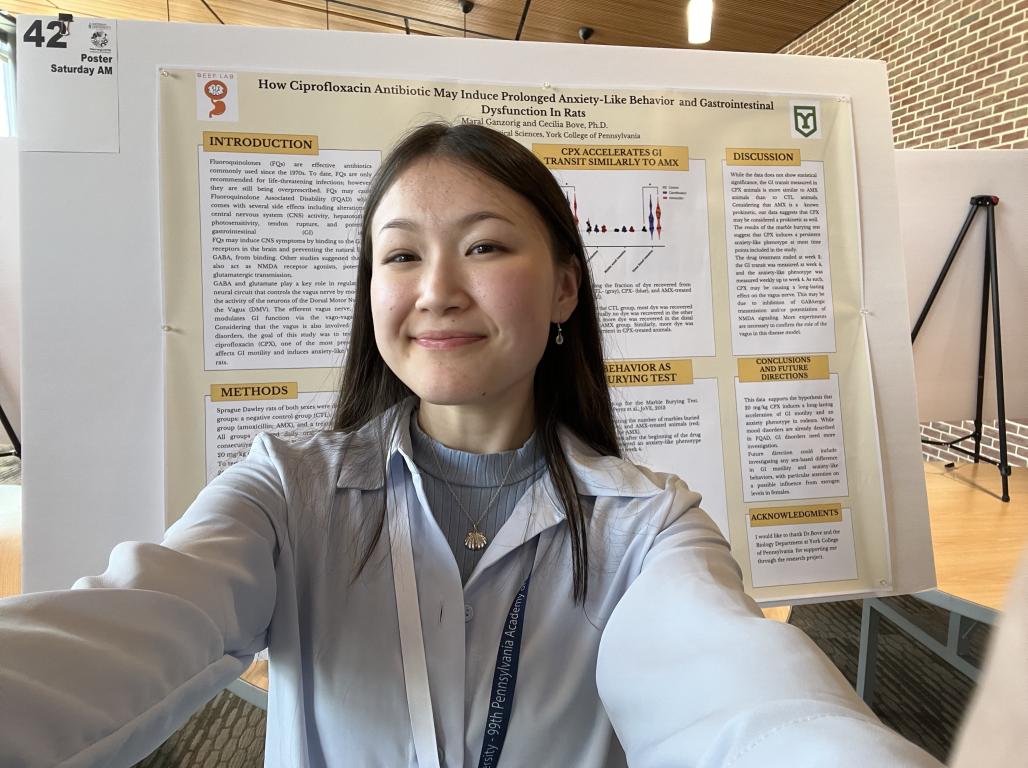
The terms psychology and psychiatry are often used interchangeably when discussing counseling or mental health services. However, these two separate disciplines have some notable differences.
What are the Differences Between Psychology and Psychiatry?
Psychology and psychiatry are related but distinct fields. While both focus on understanding and supporting mental health, each area has distinct specializations, training requirements, and real-world applications.
Psychology 101
Psychology is the scientific study of behavior and mental processes. Clinical Psychologists hold “advanced knowledge on psychological disorders—how people come to develop them through interpersonal, socio-cultural, and biological factors,” explains Jennifer Engler, PhD, Chair of the Department of Psychology at York College of Pennsylvania. Professionals in this field may work in research settings, schools, hospitals, businesses, or private practices. While those who hold a doctoral degree may become practicing clinical psychologists, many mental health counselors are licensed and practice at the master’s degree level.
Discovering Psychiatry
While the clinical subfield of psychology studies mental health from a biopsychosocial perspective, psychiatry examines it from a medical perspective. “[Psychiatrists] receive an M.D. – Doctor of Medicine Degree,” says Dr. Engler. “During medical school, they are enrolled in the same medical courses a biosurgeon or general physician would take, and this might include a few courses in psychology. Later in their residency or fellowship work, they are more likely to specialize in psychiatry-specific coursework.” As medical doctors, psychiatrists are able to prescribe medications and order medical tests. Although not typical, some may also incorporate talk therapy or counseling into their work. These healthcare professionals may work in hospitals, clinics, or private practices.
Psychiatrist and Psychologist Education Requirements
Just as professional roles and areas of expertise differ between psychiatry and psychology, very different educational paths are also required for people who wish to pursue one of these careers. The first step is often dependent on an individual’s undergraduate degree. While a bachelor’s degree in psychology is an ideal fit for someone who is interested in working as a case manager, psychiatric technician, researcher, or career counselor (just to name a few options). Psychology is also an ideal major for anyone who intends to launch a career in clinical counseling or any other profession that requires continuing one’s education through graduate study in psychology.
On the other hand, those aiming to become practicing psychiatrists may choose an undergraduate major that provides a smooth transition into medical school, such as Premedical Sciences, Biology, or Biochemistry.
Requirements to Become a Psychologist
To become a practicing clinical psychologist, one typically needs to complete the following steps:
- Earn a bachelor's degree in psychology or a related field
- Obtain a graduate degree, such as a master's or doctoral degree, in psychology
- Complete a supervised clinical experience, which varies by state and licensing board
- Pass a licensing exam to become a licensed psychologist.
Specific requirements for each step may vary by state and country, so be sure to verify the necessary qualifications in your region. The Association of State and Provincial Psychology Boards (ASPPB) provides an online Handbook on Licensing and Certification Requirements for reference..
Requirements to Become a Psychiatrist
To become a psychiatrist, providers must:
- Earn a bachelor's degree in a pre-medical field
- Attend medical school and earn a medical degree
- Complete a residency in psychiatry, which typically lasts four years
- Obtain a state medical license
- Pass the Psychiatry Board Certification Exam to become board certified.
Education and training requirements for psychiatrists focus heavily on medical training, including courses in pharmacology, biochemistry, and anatomy, in addition to clinical training in psychiatry.
Other Careers for Psychology Majors
While a doctoral degree is necessary to earn the title of psychologist or psychiatrist, there are a variety of psychology-related positions that offer strong job prospects for psychology majors. “The demand for mental health workers far outweighs the supply [of mental health workers],” Dr. Engler says. This makes psychology a lucrative field for upcoming college graduates and young professionals.
Careers in social services, child development, and human resources are open to those with a psychology bachelor’s degree. You may also choose to pursue work as a researcher, or in the field of organizational psychology where professionals provide career counseling or support businesses in providing resources for their employees.
Earning a master’s or doctoral degree following an undergraduate psychology degree unlocks additional tiers of job opportunities, including mental health counseling, marriage or family therapy, or Applied Behavior Analysis.
So…Is Psychology or Psychiatry Better?
There’s no right or wrong when it comes to choosing between psychology and psychiatry, whether you’re making plans for a future career or trying to select a practitioner to support your own wellness. They are simply different disciplines, and the professionals in each field have varying expertise to offer.
Now that you have a good understanding of what makes these two areas distinct, take some time to consider what you’re looking for. Are you interested in the healthcare field, where providers have the ability to prescribe medications in addition to providing one-on-one care? Do the qualifications of medical school and earning an M.D. sound appealing? If so, psychiatry may be the best track for you.
If you’re interested in exploring and applying your knowledge about why humans think, act, and communicate in certain ways—then, psychology may be a better fit. For those considering college majors or job prospects, psychology also provides a strong foundation for a number of roles and industries that deal with human behavior.
Whatever your unique needs and interests, knowing the difference between psychology vs. psychiatry will help you to make an informed decision about your next steps.
Learn more about the psychology degree program at York College of Pennsylvania.



